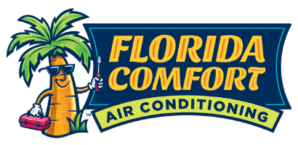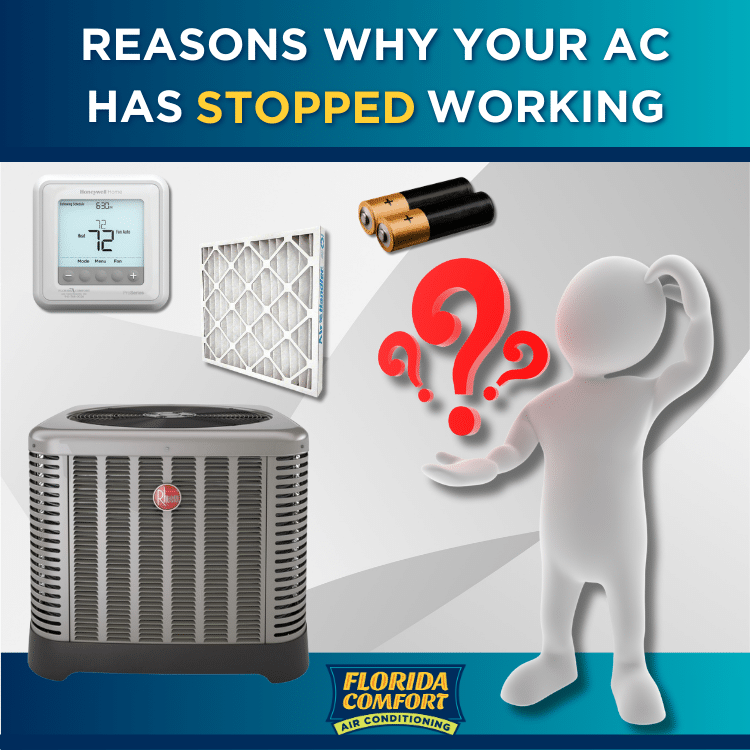A Guide to why your AC Stopped Working Suddenly
Your air conditioner is a crucial component in maintaining a comfortable indoor environment, especially during hot seasons. However, it can be frustrating if your ac stopped working suddenly on a hot day. In this comprehensive guide, we’ll explore the common reasons why your AC might cease to function and discuss practical troubleshooting steps to help you identify and address these issues.
Thermostat Issues: When your AC stops working, the first place to check is your thermostat. A malfunctioning thermostat can prevent your system from receiving the right signals to cool your home. Verify the settings, replace batteries, and ensure the thermostat is functioning correctly.
Clogged Air Filters: Dirty air filters restrict airflow, leading to strain on your AC system. Regularly changing or cleaning filters is crucial. If neglected, it can cause the system to overheat and shut down.
Float Safety Switch Activation: The float safety switch is designed to prevent water overflow in the drain pan. If triggered due to excessive condensate, it shuts off the AC. Clearing the drain line and ensuring proper drainage prevents this issue.
Tripped Breakers: A tripped breaker in the electrical panel can cut power to your AC. Inspect the breaker panel, reset any tripped breakers, and ensure the electrical connections are secure.
Blower Motor Failure: The blower motor is responsible for circulating cool air. If it fails, your AC won’t function. Check for unusual noises or lack of airflow, indicating a potential blower motor issue.
Evaporator Coil Refrigerant Leak: Refrigerant leaks from the evaporator coil can hinder the cooling process. If you notice decreased cooling efficiency, hissing sounds, or frozen coils, it may be a sign of a refrigerant leak.
Faulty Heater: In heating and cooling systems, a malfunctioning heater can impact overall performance. Regular maintenance and timely repairs are essential to ensure both functions work seamlessly.
Condenser Fan Motor Failure: The condenser fan motor assists in heat exchange. If it fails, your AC won’t cool efficiently. Inspect the motor for signs of wear, and replace if necessary.
Unbalanced Condenser Fan Blade: An out-of-balance fan blade can lead to excessive vibration and noise. Regular maintenance includes checking for proper balance to avoid strain on the motor.
Impacted Condenser Coil: External factors like dirt, debris, or vegetation can impact the condenser coil’s ability to release heat. Regular cleaning and maintenance are essential to prevent overheating.
Compressor Failure: The compressor is the heart of your AC system. If it fails, your unit won’t cool. Signs of compressor failure include warm air blowing, strange noises, or frequent cycling.
Contactor Failure: The contactor is responsible for controlling power flow to the compressor and condenser fan. Faulty contactors can interrupt this process, leading to AC failure.
Capacitor Failure: Capacitors store and release electrical energy. When they fail, your AC might struggle to start or experience intermittent operation. Regular checks and prompt replacement are crucial.
Hard Start Kit Failure: Hard start kits assist the compressor during startup. If the kit fails, your AC may have difficulty starting, resulting in repeated attempts and potential damage.
Blocked Drain Line or PVC Blockage: A backed-up drain line or PVC blockage can cause water accumulation, triggering the float safety switch. Regularly clear the drain line to prevent this common issue.
If your AC stopped working suddenly, identifying the root cause is essential for timely and effective resolution. Regular maintenance, prompt repairs, and attentive troubleshooting are key to ensuring your air conditioning system operates smoothly, providing the comfort you need. By understanding and addressing these common issues, you can extend the life of your AC unit and minimize disruptions to your indoor climate control.

